Prisoner of war
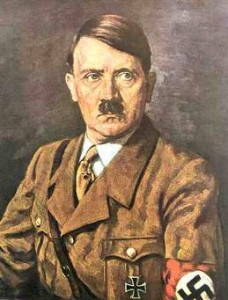
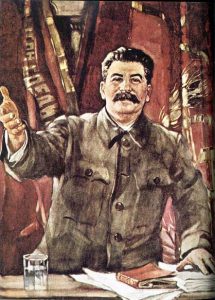 Generally speaking, a man’s word is his bond…as the saying goes, but when a man’s word can’t be trusted, well promises mean nothing, agreements mean nothing, partnership means nothing. The people who took Adolf Hitler at his word, found out the hard way, that Hitler was definitely not a man of his word. On June 22, 1941, after making an agreement, known as the Nazi-Soviet Pact of 1939, Nazi Germany at Hitler’s command, launched a massive invasion against the USSR. The agreement was basically that Germany and the USSR would not attack each other. Less than two years into the agreement, Hitler broke the agreement. He was most likely planning that invasion all along, but he needed to have the people of the USSR unaware of his plans. He needed to have them trust him, so his invasion would be a complete surprise attack.
Generally speaking, a man’s word is his bond…as the saying goes, but when a man’s word can’t be trusted, well promises mean nothing, agreements mean nothing, partnership means nothing. The people who took Adolf Hitler at his word, found out the hard way, that Hitler was definitely not a man of his word. On June 22, 1941, after making an agreement, known as the Nazi-Soviet Pact of 1939, Nazi Germany at Hitler’s command, launched a massive invasion against the USSR. The agreement was basically that Germany and the USSR would not attack each other. Less than two years into the agreement, Hitler broke the agreement. He was most likely planning that invasion all along, but he needed to have the people of the USSR unaware of his plans. He needed to have them trust him, so his invasion would be a complete surprise attack.
When he was ready, and aided by his far superior air force, Hitler sent his German army racing across the Russian plains. The German Army was given carte blanche in the invasion, and so they went about inflicting terrible casualties on the Red Army and the Soviet civilians. Of course, the German Army wasn’t alone in their attack. Their first targets of attack were Leningrad and Moscow. With the assistance of troops from their Axis allies, the Germans conquered the vast territory, and by mid-October the great Russian cities of Leningrad and Moscow were under siege. The Soviets held on, and the coming winter forced the German offensive to pause.
Hitler set his sights on the summer of 1942, and ordered the Sixth Army, under General Friedrich Paulus, to take Stalingrad in the south. Stalingrad was an industrial center and therefore, an obstacle to Nazi control of the precious Caucasus oil wells. The oil wells were a crucial part of the control process. The Army made advances across the Volga River in August, while the German Fourth Air Fleet reduced Stalingrad to burning rubble, killing more than 40,000 civilians. With the first attack behind them, Paulus ordered the first offensives into Stalingrad in September, estimating that it would take his army about 10 days to capture the city.
The ensuing battle was one of the most horrific battles of World War II. It was also quite likely the most important because it was the turning point in the war between Germany and the USSR. The USSR’s Red Army was furious and had an ax to grind over the ruined city and their lost loved ones and friends. Now, the German Sixth Army faced General Vasily Chuikov leading a bitter Red Army seeking revenge. They quickly transformed destroyed buildings and rubble into natural counter offensive fortifications. Then, using a method of fighting known as the Rattenkrieg or “Rat’s War,” the opposing forces broke into squads eight or 10 strong and fought each other for every house and yard of territory. The battle saw rapid advances in street-fighting technology. Things like a German machine gun that shot around corners and a light Russian plane that glided silently over German positions at night, dropping bombs without warning were birthed during this battle. The biggest problem the armies faced, however, was a lack of necessary food, water, or medical supplies, causing tens of thousands of soldiers to die every week.
The biggest miscalculation Hitler made was the resolve of Soviet leader Joseph Stalin, who was determined to liberate the city named after him. In November he ordered massive reinforcements to the area. On November 19, General Zhukov launched a great Soviet counteroffensive. German command underestimated the scale of the counterattack, and the Sixth Army was quickly overwhelmed by the offensive, which involved 500,000 Soviet troops, 900 tanks, and 1,400 aircraft. Within three days, the entire German force of more than 200,000 men was encircled. Before long, the Italian and Romanian troops at Stalingrad surrendered. That didn’t follow for the Germans, who hung on. Of course, Hitler would not let them surrender, so they waited…receiving limited supplies by air and waiting for reinforcements. Hitler ordered Paulus to remain in place and promoted him to field marshal, because no Nazi field marshal had ever surrendered.
The Germans lost as many lives to starvation and the bitter Russian winter, as they did to the merciless Soviet troops. Their supply line was completely cut off on January 21, 1943, when the last of the airports held by the Germans fell to the Soviets…completely cutting off their supplies. Despite Hitler’s threats, Paulus surrendered German forces in the southern sector on January 31, and on February 2 the remaining German troops surrendered. By the time Paulus surrendered, there were only 90,000 German soldiers still alive. They may 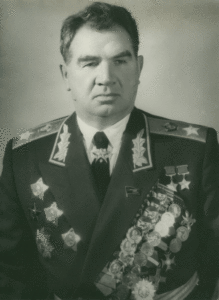
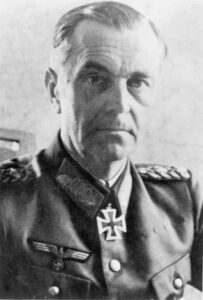 have thought they were among the lucky ones, but of the 90,000, only 5,000 survived the Soviet prisoner-of-war camps and make it back to Germany.
have thought they were among the lucky ones, but of the 90,000, only 5,000 survived the Soviet prisoner-of-war camps and make it back to Germany.
The Battle of Stalingrad was the turning point in the war between Germany and the Soviet Union. Chuikov had played such an important role in the victory. Later, it was he who led the Soviet drive on Berlin. As a reward, on May 1, 1945, he was given the right to personally accept the German surrender of Berlin. Paulus, who felt betrayed by Hitler, was among the German prisoners of war in the Soviet Union. He provided testimony at the International Military Tribunal at Nuremberg in 1946. After his release by the Soviets in 1953, he settled in East Germany.
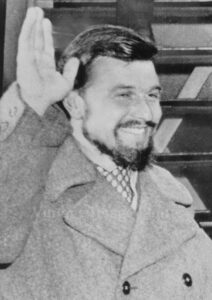 To most of us, committing espionage against our own country is…unthinkable, but there are those among us who wouldn’t give that a second thought. I think most countries have spies who do their best to find out information about another country, and I suppose that by design, that would mean that someone would have to commit espionage. I guess the two would go hand in hand, and it would depend on just how loyal a person was as to the limits they would go.
To most of us, committing espionage against our own country is…unthinkable, but there are those among us who wouldn’t give that a second thought. I think most countries have spies who do their best to find out information about another country, and I suppose that by design, that would mean that someone would have to commit espionage. I guess the two would go hand in hand, and it would depend on just how loyal a person was as to the limits they would go.
George Blake, who was born George Behar on November 11, 1922, was a British MI6 agent, and at one time thought to be a loyal agent, but during his time as a prisoner of war in Seoul, during the Korean War, he was apparently converted into a Communist, and strategically set up to be a double-agent. I suppose there is a number of prisoners of war who traded secrets for life and freedom from torture, and some who honestly changed their viewpoint, but to me it is outrageous. George Blake must 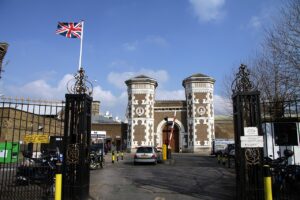 not have seen it that way, because he was a double-agent until he got caught in 1961.
not have seen it that way, because he was a double-agent until he got caught in 1961.
During his active double-agent years, he is believed to have betrayed the names of more than 40 British agents to the Soviets. Many of those he betrayed disappeared and were thought to have been executed. His betrayals basically destroyed British secret service operations in the Middle East. It must have been almost impossible to get agents to work in that region. Blake is believed to have passed on the names of almost every British agent working in Cairo, Damascus, and Beirut. Lord Parker, Lord 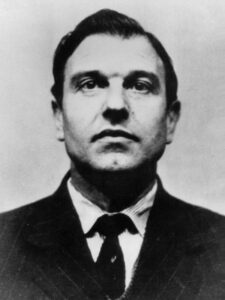 Chief Justice, the judge sentencing him, likened his actions to treason, and said, “It is one of the worst that can be envisaged other than in a time of war.” Blake was charged under the Official Secrets Act in May 1961. Blake pleaded guilty to five counts of passing secrets to the Soviet authorities during his trial, part of which was held in camera.
Chief Justice, the judge sentencing him, likened his actions to treason, and said, “It is one of the worst that can be envisaged other than in a time of war.” Blake was charged under the Official Secrets Act in May 1961. Blake pleaded guilty to five counts of passing secrets to the Soviet authorities during his trial, part of which was held in camera.
In 1966, Blake escaped from Wormwood Scrubs prison after serving five years of his sentence and having been removed from the list of likely escapers after only a year. Apparently, his supposed acceptance of his exceptionally long sentence lulled wardens into a false sense of security. It is assumed that he had help from the Soviet Union, and after his escape, he was quickly whisked away to the Soviet Union, where he lived out his life. He passed away in Moscow, Russia on December 26, 2020, at the age of 98 years.
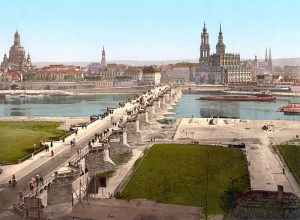
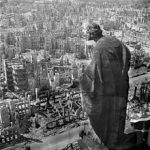 The American prisoners of war had heard the Allied planes pass overhead many times before, but this was different. Along with the sound of the planes, came the howling of Dresden’s air raid sirens. Dresden was known as the “Florence of the Elbe.” The American prisoners of war were moved two stories below into a meat locker. I don’t really understand that in light of the outcome. The Germans didn’t care about their prisoners, but I guess they didn’t care about their own countrymen either. Why would they move their prisoners to a place of safety, but leave the people of the town to fend for themselves. I suppose that they might have wanted the prisoners for leverage, but how good is a victory, if there are no one to live in the town.
The American prisoners of war had heard the Allied planes pass overhead many times before, but this was different. Along with the sound of the planes, came the howling of Dresden’s air raid sirens. Dresden was known as the “Florence of the Elbe.” The American prisoners of war were moved two stories below into a meat locker. I don’t really understand that in light of the outcome. The Germans didn’t care about their prisoners, but I guess they didn’t care about their own countrymen either. Why would they move their prisoners to a place of safety, but leave the people of the town to fend for themselves. I suppose that they might have wanted the prisoners for leverage, but how good is a victory, if there are no one to live in the town.
In this instance, I suppose it didn’t matter, because when the prisoners were brought back to the surface, “the city was gone”…levelled by the bombs from the RAF and the USAAF. One prisoner, Kurt Vonnegut who was a writer and social critic, recalled the scene…shocked. The devastation was unbelievable, the bombing had reduced the “Florence of the Elbe” to rubble and flames. Still, Vonnegut could not help but be thankful that he was still alive. Who wouldn’t be thankful. He was alive, and he would be forever thankful. Who wouldn’t be. It was a second chance.
The devastating, three-day Allied bombing attack on Dresden from February 13 to 15, 1945 in the final months of World War II became one of the most controversial Allied actions of the war. Some 2,700 tons of explosives and incendiaries were dropped by 800-bomber raid and decimated the German city.
Dresden was a major center for Nazi Germany’s rail and road network. The plan was to destroy the city, and thereby overwhelm German authorities and services, and clog all transportation routes with hordes of refugees. An estimated 22,700 to 25,000 people were killed, in the attacks. Normally, Dresden had 550,000 citizens, but at the time there were approximately 600,000 refugees too. The Nazis tried to say that 550,000 had been killed, but that number was quickly proven wrong.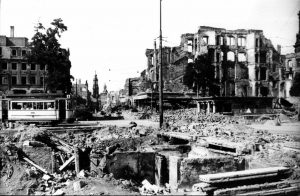
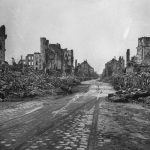
The Allied assault came a less than a month after 19,000 US troops were killed in Germany’s last-ditch offensive at the Battle of the Bulge, and three weeks after the grim discovery of the atrocities committed by Nazi forces at Auschwitz. In an effort to force a surrender, the Dresden bombing was intended to terrorize the civilian population locally and nationwide. It certainly had that effect in 1945.

